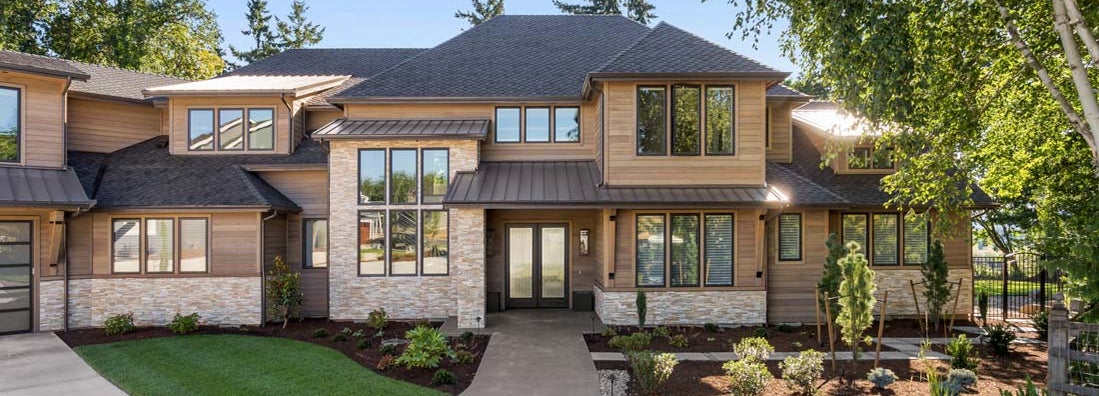What Is the Most Important Insurance Coverage for Your Home?

Paul Martin is the Director of Education and Development for Myron Steves, one of the largest, most respected insurance wholesalers in the southern U.S.

When you purchase a home, you're not only taking responsibility for the property but anything that happens on, in, or to the people who visit that property. So you may be asking, what's the most important coverage to have for your home? We'll tell you, and we'll also tell you if you're covered.
The good news is that an independent insurance agent can be your right-hand man or woman when it comes to understanding and purchasing the proper home insurance. They've not only seen and handled a variety of claims, but they understand all the risks that come with owning a home and can protect you from them before they happen.
What’s the Most Important Coverage to Have for Your Home?
The most commonly purchased insurance is homeowners liability insurance, and it's for good reason.
Liability insurance protects you in the event of an accident, injury, or property damage that takes place in your home or on your property. As a property owner, you're responsible for anything that happens on your property from a slip and fall to a dog bite. Seeing as one in 900 homeowners policies has a liability claim related to the cost of lawsuits for bodily injury or property damage that the policyholder or family members cause to others, that makes liability insurance very important coverage to have.
What Insurance Is Going to Help Protect Me or Get Me Back on My Feet after an Incident?
Lots of things can go wrong in a home, which is why your homeowners insurance is designed to protect you after an incident. Homeowners insurance provides coverage for a range of risks from property damage to added living costs. Here's how your homeowners insurance can help you.
- Property damage: If your home or any detached structures, like a storage shed, are damaged from things like hurricanes or vandalism, your property damage provides compensation for the damage. Keep in mind that earthquakes and floods are excluded from property damage coverage and need to be purchased separately.
- Personal property loss: If your personal property such as your laptop or television are damaged or stolen, your personal property coverage will replace the cost of the items up to your policy limits. Damage due to flooding, earthquakes, and personal negligence are typically excluded from personal property coverage.
- Personal liability: If you, your family member, or even your pet causes an accident, injury, or property damage, your liability insurance can protect you. Whether the issue requires medical care or repair of property, you will typically have coverage up to your liability limits.
- Added living costs: If your house is uninhabitable, your homeowners insurance can pay for alternative living arrangements while your home is repaired or rebuilt. Depending upon your homeowners insurance company and the specifics of your policy, this may be included or maybe an optional coverage.
What Does My Property Coverage Do?
Property damage claims are by far the most common claims made by homeowners.
- About one in 40 insured homes has a property damage claim related to wind or hail each year.
- About one in 50 insured homes has a property damage claim caused by water damage or freezing each year.
- About one in 400 insured homes has a property damage claim due to theft each year.
- About one in 350 insured homes has a property damage claim related to fire and lightning.
Within property coverage are three types of insurance coverages including replacement costs, actual cash value, and extended replacement costs.
- Replacement cost: This repairs or replaces your damaged property at the same or equal value before it was damaged. The cost to replace is based on replacement costs versus the cash value of the property that was damaged.
- Actual cash value: This pays for the value of the damaged property minus any depreciation if the item is older. For example, if a fire burns down a 15-year-old washer, you would receive the value of the washer after depreciation, not a brand new washer.
- Extended replacement costs: This pays over the coverage limit if the construction costs have increased, but there's usually a limit that the payment will not exceed.
In the event that you experience any damage to your property by a covered peril in your policy, you'll be fully protected.
What Does Liability Coverage Do for Homeowners
If someone were to be injured on your property, you're susceptible to being sued. Here are a few scenarios of how a third-party could be injured on your property.
- Your neighbor is walking over to deliver something to you and slips and falls in your driveway because you neglected to shovel the snow.
- A friend and their child are swimming in your pool and the child slips and hits their head on the edge of the pool.
- A gardener is working on your yard and steps in a hole in your grass and rolls their ankle.
- A friend is at your house helping you move some furniture and you accidentally run over their bike.
All of these scenarios could result in the third party going to the hospital or wanting you to pay for their damaged property. Seeing as these incidents took place on your property, you could be held liable to pay for their medical bills and damaged property.
Typically, liability insurance will potentially cover:
- The cost of repairs to another person’s property
- The medical expenses of an injured party
- The cost of your legal defense when an attorney must defend you against bodily injury or property damage
Umbrella Coverage for Homeowners
Depending on your specific home and other factors, you may want to consider adding umbrella coverage to help extend your liability coverage’s limits. Umbrella insurance increases your protection beyond the liability limits offered in your homeowners policy.
There are a variety of risks to homeowners that could warrant an umbrella insurance policy, but the most common lawsuits filed against homeowners include:
- Dog bites: Injuries caused by a family pet can cost an average of $30,000 in claim settlements.
- Fallen trees: Fallen trees can result in the ten-thousands worth of damage.
- Hired help injuries: If a domestic worker, such as a maid or gardener, is injured on your property due to your failure to maintain a safe premises, the resulting lawsuit and medical payments required could get expensive, fast.
- Intoxicated guests: When you throw a party and it gets a little out of hand, you as the homeowner are still held responsible for any property damage or bodily injuries an intoxicated guest causes to other guests.
Other Common Home Insurance Claims
Knowing the risks that homeowners face on a daily basis can assure that you have the best protection when you work with your independent insurance agent.
In 2014 to 2018, fire and lightning were the most costly property damage claims. Wind and hail topped the list for the most frequent insurance claims followed by water damage and freezing.
Homeowners Losses Ranked by Claims Frequency, 2014 to 2018 (1)

What about Extra Endorsements? Do I Need Them?
While your homeowners insurance will covers a variety of common risks, there are some things that are not inherently protected in your policy. This is where endorsements can be beneficial. Endorsements are added coverages that protect you above and beyond what's offered in your general policy.
Some endorsements to consider adding to your policy include:
- Earthquake insurance: This coverage protects homeowners against home damage due to earthquakes, mudslides, and other related natural events. Standard homeowners policies do not provide coverage for these types of disasters.
- Flood insurance: If you live in an area prone to flooding, you’ll want to purchase a flood insurance policy to protect your home against damage or destruction due to floodwaters.
- Sewer and drain backup: Having a sewer leak can be a messy event, and without the proper insurance it can also be costly. This insurance provides compensation for any damage that results from this event.
- Jewelry and personal property endorsement: High-value items like jewelry, firearms, and other property can be damaged in events like a fire or hurricane, but they won't be covered under your general property insurance. If you have valuables that you're concerned about, a personal property endorsement can pay for their replacement if they're damaged.
Your independent insurance agent can help you address any remaining coverage concerns you may have. They’ll make sure you get set up with all the protection you could possibly need against many different kinds of unforeseen disasters.
Here’s How an Independent Insurance Agent Would Help
We know that keeping your family, your home, and your belongings safe is a top priority. Shopping home insurance can be overwhelming, which is why it's beneficial to work with an independent insurance agent. They’d search through multiple carriers to find providers who specialize in home insurance, deliver quotes from a number of different sources, and help you walk through them all to find the best blend of coverage and cost.
https://www.iii.org/fact-statistic/facts-statistics-homeowners-and-renters-insurance#:~:text=About%20one%20in%2020%20insured%20homes%20has%20a%20claim%20each%20year.&text=About%20one%20in%20900%20homeowners,family%20members%20cause%20to%20others.
